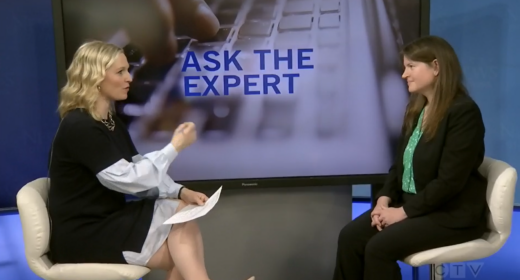When an insurer terminates or refuses to pay statutory accident benefits under the Insurance Act1, but fails to provide adequate notice of the dispute resolution process as required by the Statutory Accident Benefits Schedule2 ("SABS"), what is the consequence? Does an improper termination mean that the insured is entitled to the payment of benefits until a proper termination is received? What about if an insured fails to request a new Disability Certificate prior to referring an insured for a section 42 examination as required by subsection 37(1) of the SABS?
Recent case law has held that procedural failures in the termination/refusal process do not automatically entitle an insured person to the payment of benefits until a proper termination takes place. The insured is still required to prove entitlement based on the criteria to receive the particular benefit at a trial or arbitration hearing. Whether an insured is entitled to an interim order for benefits pending the trial or arbitration hearing is not entirely clear. Based on two recent decisions, it appears that at least some FSCO (Financial Services Commission of Ontario) arbitrators are of the view that a failure to comply with the termination procedures does not entitle insureds to orders for the interim benefits. This issue is not 100% settled however.
In Smith v. Co-operators General Insurance Co.3 the Supreme Court of Canada held that one of the main objectives of insurance law is consumer protection, particularly in the field of automobile insurance. In Smith, the Supreme Court concluded that the insurer had failed to comply with its obligation under s. 71 of the SABS4 to inform the insured of the procedure for resolving disputes set out in ss. 279 to 283 of the Insurance Act when it refused to pay certain benefits. Because the limitation period under section 281(5) of the Insurance Act only began to run upon a refusal, that Supreme Court concluded that the limitation period was not triggered by an improper refusal and as such, the limitation period had not begun to run.
In Stranges v. Allstate Insurance Co. of Canada5, the insured's income replacement benefits were terminated by way of a notice of termination that was in an identical form to the one considered by the Supreme Court of Canada in Smith. In Stranges, the insured argued that because the termination was improper, she was entitled to the payment of benefits until a proper notice was given. This argument was rejected by the Ontario Court of Appeal, which indicated that in Smith, although Justice Gonthier noted that the limitation period had not begun to run, he made no conclusion about the merits of the claim, which a trial judge would have to assess. Thus, the Ontario Court of Appeal concluded in Stranges that an inadequate notice did not automatically entitle an insured to the payment of benefits; she was still required to prove her claim.
A similar argument was advanced by the insured in State Farm Mutual Automobile Insurance Company v. Yogesvaran.6 In this case, the insurer was found to have failed to have requested a new disability certificate prior to making a determination whether the insured was still entitled to a specified benefit, as required by clause 37(1)(a) of the SABS. On appeal, Director’s Delegate Blackman noted that section 37 of the SABS does not set out the consequences of non-compliance with the termination procedures. He concluded that he was bound by Stranges, and as such, the non compliance did not automatically entitle the insured to the payment of benefits. She was still required to prove entitlement according to the legislated criteria of eligibility.
With regard to the issue of an interim award of benefits however, Delegate Blackman concluded that an adjudicator exercising his or her discretion to make an interim award of benefits would be consistent with Stranges. As such, for Delegate Blackman, appropriate relief in the event of an improper termination of benefits could be an interim order for payment of the denied benefit, pending the trial or arbitration hearing.
Delegate Blackman’s Appeal Order in Yogesvaran is dated October 28, 2010. Only one day earlier, on October 27, 2010, the judgment of Arbitrator Lee in Bisnath v. State Farm Mutual Automobile Insurance Co. 7 was released. Bisnath was a FSCO Preliminary Issue Hearing in which Arbitrator Lee addressed the consequence of an admission by the insurer that it failed to provide to the insured a copy of the section 42 insurer’s examination report relied on to deny a benefit within the time frames contemplated by sections 35(8) and 37(5) of the SABS.8 Arbitrator Lee indicated he was bound by Stranges, and held that procedural flaws did not automatically entitle the insured to continuing and ongoing weekly benefits until a proper notice was given. He held that the insured must still prove disability in order to receive benefits and ordered that the matter proceed to an arbitration hearing to address entitlement.
The insured in Bisnath sought leave to appeal this decision, which was rejected by Director’s Delegate Evans (by way of letter decision). Delegate Evans held that the issue was no longer novel and there was little apparent strength to the appeal, in light of Stranges. The insured sought judicial review. The Divisional Court summarized the issue as follows:
An Arbitrator concluded that the insurer had failed to comply with various requirements of the Statutory Accident Benefits Schedule before terminating income replacements benefits, but concluded that this failure did not, in itself, entitle the applicant to ongoing benefits before a hearing on the merits of her entitlement to income replacement benefits [underline added].
The wording chosen by the Divisional Court decision suggests that Arbitrator Lee had determined that interim benefits were not payable. In his decision however, Arbitrator Lee did not address the issue of interim benefits. He adjudged that that the insured was not entitled to continuing and ongoing benefits until a proper notice was given and that the matter would proceed to a full hearing on the merits. His decision contained no indication that interim benefits were requested or denied.
Two subsequent FSCO arbitrators held that a procedural non compliance in the termination of benefits does not entitle insureds to interim payments pending a an arbitration hearing or trial on the merits. In Shanmuganathan v. State Farm Mutual Automobile Insurance Co.9 Arbitrator Lee once again addressed the issue of the consequence of an insurer breaching the provisions of section 37 of the SABS when terminating benefits. He concluded that the breach gave rise to neither ongoing entitlement to benefits nor to an interim order for benefits pending the arbitration hearing. Arbitrator Lee noted that an award of interim benefits is an extraordinary measure and a discretionary exercise, taking into factors such as demonstrating a prima facie case, evidence of need and urgency. He held that a breach of section 37(1)(a) alone did not necessarily give rise to interim benefits.
Arbitrator Lee was critical of the Yogesvaran decision. He noted that the only jurisprudence cited by Delegate Blackman to support the proposition that a procedural breach of the SABS could lead to interim relief was the decision of Sweete v. Jevco Insurance Co.10 Jevco was noted to have been decided under previous and distinguishable provisions of the SABS and moreover, that the arbitrator in Jevco recognized that the insured had satisfied the other requirements usually considered when ordering interim benefits such as proving a "bona fide claim," as well as providing evidence of urgency and necessity.
Arbitrator Lee noted that in Bisnath he had not ordered the payment of benefits resumed, that the appeal was refused by Director’s Delegate Evans and that the Divisional Court determined that Delegate Evans had reasonably exercised his discretion in rejecting the Bisnath appeal.
Arbitrator Lee indicated that Bisnath represented a divergent approach taken by Delegate Evans, compared to the approach taken by Delegate Blackman in Yogesvaran. Between these two approaches, he concluded that: "the greater weight and authority of judicial and arbitral jurisprudence follows the more reasoned approach set out in Stranges and Bisnath, rather than in Yogesvaran." In the context of the issue of an order for interim benefits, this conclusion is somewhat perplexing, given the issue of an interim order for benefits was not addressed in either Stranges or Bisnath.
A second decision after Yogesvaran that addressed the issue of whether interim benefits should be payable as a result of a breach of section 37 of the SABS is the FSCO arbitration decision Robinson v. State Farm Mutual Insurance Company.11 This was a motion for interim specified benefits based on the insurer’s failure to have requested a new disability certificate as required by section 37)(1)(a) of the SABS.12 In this case, Arbitrator Fadel indicated he did not believe Yogesvaran stood for the proposition that in the face of a breach of the SABS an interim benefit was payable until a hearing on the merits. Arbitrator Fadel noted that if Delegate Blackman had intended to make that determination, this would have been clearly stated in his decision.
Arbitrator Fadel also noted that the Divisional Court in Bisnath had stated that the insured in that case would have a full opportunity to prove his entitlement to benefits under the SABS "at the hearing on the merits." As noted above however, in Bisnath, an interim order did not appear to have been requested or considered.
Conclusion
In Shanmuganathan, Arbitrator Lee indicated that there were divergent approaches taken by the Director’s Delegates in Yogesvaran and Bisnath. Presumably, the first approach is that a procedural non compliance in the termination of benefits entitles an insured to an interim award of benefits pending a full hearing on the merits. The second approach is that an arbitrator continues to have discretion to award interim benefits and claimants must first establish a prima facie case. In neither Shanmuganathan or Robinson did the arbitrators undertake a detailed analysis of the factors to consider in awarding interim benefits and more importantly, how a procedural non compliance, such as a failure to comply with section 37 of the SABS, might tie in with these factors. Perhaps more importantly, to the extent that Yogesvaran does represent a divergent approach to awards of interim benefits, given the Bisnath decision did not even address the issue of interim benefits, it is debatable whether the arbitrators in Shanmuganathan and Robinson were not bound by Yogesvaran.
Delegate Blackman in Yogesvaran did not specifically hold that an insurer’s failure to comply with clause 37(1)(a) of the SABS will automatically result in an order for interim benefits. He indicated that that such an order could be considered a proper exercise of discretion. As such, the correct approach to a consideration of a payment of interim benefits would appear to be an examination of the factors set out in the case law regarding orders for interim payments of benefits. These factors include proof of a prima facie case, need, urgency and whether there has been a failure to comply with the SABS on termination. This fourth factor is not a novel consideration and has been addressed in previous FSCO decisions on the issue of interim benefits.
If there was any question whether Delegate Blackman’s decision in Yogesvaran stood for the proposition that failing to comply with the SABS on termination (and in particular failing to comply with clause 37(1)(a) of the SABS), would result in an automatic award of interim benefits, this suggestion has been rejected by the two arbitrators who have recently addressed this issue. To the extent however that Delegate Blackman’s decision represents a divergent approach to this issue, as suggested by Arbitrator Lee, it could be open for a party to argue that Shanmuganathan and Robinson were not properly decided. Further clarification of this issue may be required at an appellate level.
1 R.S.O. 1990, c. I.8. as amended.
2 O.Regs. 776/93, 403/96 and 34/10, as amended.
3 [2002] 2 S.C.R. 129.
4 Accidents after December 31, 1993 and before November 1, 1996 , O.Reg. 776/93, as amended.
5 [2010] O.J. No. 2610.
6 2010 CarswellOnt 8524 FSCO App.
7 2010 CarswellOnt 8537 FSCO Arb.
8 Accidents on or after November 1, 2996, O.Reg 403/96, as amended.
9 2011 CarswellOnt 15125 FSCO Arb.
10 OIC A96-000614, October 24, 1996.
11 2012 CarswellOnt 3439<
12 Accidents on or after November 1, 1996, O.Reg. 403/96, as amended.


